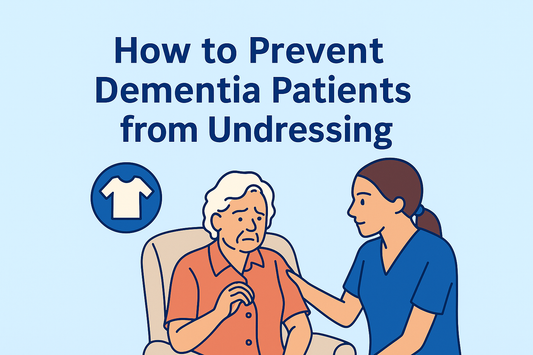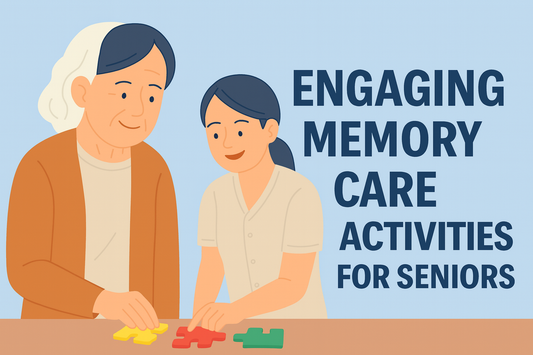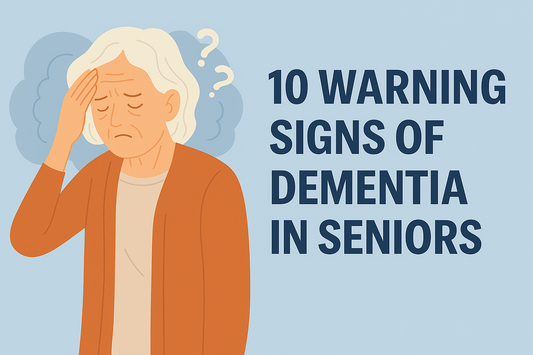
Top Signs of Dementia
WHAT IS DEMENTIA?
Dementia is the umbrella term used to describe a set of symptoms relating to cognitive functioning and behavioral abilities. This includes thinking, remembering, and reasoning. If severe enough, it can affect a person’s memory, language skills, visual perception, problem solving, self-management, and the ability to focus and pay attention.
The term ‘dementia’ itself can sometimes be heard being used in reference to some elderly people. Although some mild memory and cognitive decline in an elderly person is inevitable, it is not a normal part of aging. The loss of once-healthy neurons in the brain due to lost connection with other brain cells is far greater in people with dementia than the average elderly person.
As described, dementia itself is refers to a set of symptoms experienced by a person. Its cause, however, can be varied. Alzheimer’s disease is the most well-known and also the most common cause of dementia, accounting for around 60 to 80% of all cases. Other types of dementias include, Lewy body dementia, frontotemporal disorders, vascular dementia, and as many as 50 other causes. Sometimes a person may even be diagnosed with a combination of two or more types of dementia.
QUICK LINKS - TOPICS COVERED:
- WHAT IS DEMENTIA?
- WHO IS AFFECTED?
- TOP CAUSES OF DEMENTIA
- CATEGORIZATION OF DEMENTIA
- TOP SYMPTOMS OF DEMENTIA
- HOW TO COPE?
- TREATMENT OPTIONS
WHO IS AFFECTED?
Dementia in general affects older people. It is estimated that around 5% to 8% of all adults over the age of 65 have some form of dementia, with the percentage doubling every 5 years ager 65. Among people in their 80s, it is estimated that as many has half have some dementia.
However, there are also some forms of dementia that affect people younger than 65, known as early-onset dementia. This can either be genetically induced or due to other external factors. Frontotemporal dementia is one such type that is more common in middle aged adults than older adults.
TOP CAUSES OF DEMENTIA
Besides the age and genetic factors, there are several other causes of dementia:
Degenerative Neurological Diseases
These include Alzheimer’s disease, Parkinson’s disease, Huntington’s disease, and some types of multiple sclerosis. These diseases progressively worsen over time and have no known cure.
Vascular Disorders
These are disorders that affect the blood circulation in your brain. For example, a blood clot or stroke in the brain can a type of dementia known as vascular dementia.
Traumatic Brain Injuries
These injuries could be caused by car accidents, falls, concussions, etc. The nature of the dementia varies depending on the type and location of the head injury. Usually, dementia caused by brain injuries do not progressively worsen over time. Sometimes, there is a possibility for improvement, though it may take some months or years.
Infection of the Central Nervous System
These include meningitis, HIV, and Creutzfeldt-Jakob disease. This type of dementia is often curable though medications that treat the underlying condition if diagnosed early.
Long-time Alcohol and Drug Use
Long-term alcohol and drug use can damage nerve cells in the brain thereby inducing symptoms of dementia. With proper rehabilitation and sobriety, individuals with this kind of dementia can make partial or even full recoveries.
Certain Types of Hydrocephalus
Hydrocephalus is the buildup of fluid in the brain, which can induce symptoms of dementia.
CATEGORIZATION OF DEMENTIA
All the different types of dementias that exist can be split into two categories: cortical dementias and subcortical dementias.
Cortical Dementia
Cortical dementias happen due to a problem in the cerebral cortex, which is the outer layer of the brain. This layer is important for memory and language. This type of dementia usually causes severe memory loss and a high inability to remember words or understand language. Alzheimer’s and Creutzfeldt-Jakob diseases are two examples of cortical dementia.
Subcortical Dementia
Subcortical dementias occur due to problems in parts of the brain beneath the cerebral cortex. Individuals with this form of dementia usually show a decline in the speed of their thinking and ability to start activities and not in memory or language. Parkinson’s disease, Huntington’s disease, and HIV are some examples of subcortical dementias.
TOP SYMPTOMS OF DEMENTIA
Memory Problems
While it is normal to occasionally forget a thing or two is normal, someone with dementia may forget things more often. For example, when shopping for groceries, they may not remember buying an item (ex. Cereal) and go back to the shop to buy the same thing again. Misplacing things is also a common occurrence. The memory problem usually affects more recent memories as you will find that often the person still has clarity over older memories.
Difficulty with Tasks
This symptom also relates somewhat to a person’s memory problems. When in the middle of any tasks or activities, the person may get distracted or forget the steps. For example, when cooking, they may forget to follow all the steps in preparing the meal or they may end up repeating certain processes multiple times. Sometimes, in order to compensate, the person may start relying more and more on others to remind them of things or start writing things down. This can be especially obvious for those are still in a work setting.
Disorientation
Disorientation refers to a person’s losing track of time and or place. They may have difficulty finding their way around familiar locations or not remember their destination all of a sudden. Their sense of the passage of time can also be distorted, with difficulties in keeping track of date and time. They may even think that they are back in some past time of their life.
Language Problems
During the early stages of dementia, language problems may not be immediately evident. However, there are a few signs that can give you a clue. Firstly, they may get lost in conversations or forget the topic of conversation. They may also struggle to use the right words to refer to or describe things. Instead, they may substitute with other words, making it difficult for others to understand. In turn, they could also have trouble understanding others. For example, a person may refer to a watch as a ‘hand-clock’.
Poor Judgment
A person with dementia may exhibit poor judgement for simple things such as what to wear to big things like how to manage their finances. For example, a person might dress in clothing suited for summer in the middle of winter or pay less attention to grooming and keeping themselves clean. On a more serious note, a person who was always previously careful with their finances may suddenly find themselves in trouble with excessive spending. They are also especially gullible to scams and telemarketing.
Challenges in Planning
A combination of memory problems and challenges with tasks, a person with dementia can have trouble developing and following plans and procedures. Things like following recipes and keeping track of bills become increasingly difficult. They might have difficulty concentrating on a task and take much longer to complete them than they did before. This is also more obvious in work settings where a person has to use these skills on a regular basis.
Mood, Personality, and Behavior Changes
Changes in mood, personality, and behavior is usually not due to the dementia itself. Rather, it tends to stem from their overall frustration over the changes they are experiencing. Mood swings can be rather rapid where a person goes from being normal to confused to suspicious or even angry within a short amount of time. Failing at doing a simple task can induce stress and frustration. A formerly outgoing and social person may become quiet and withdrawn and a formerly quiet person may become more outgoing.
Visuo-Spatial Challenges
In some cases of dementia, problems with vision can be a symptom. The person may have difficulty reading, judging distance, and determining color or contrast. This can lead to challenging situations such as difficulties while driving.
Difficulty Adjusting to Changes
Familiarity, both in their surroundings and their routines can be a huge comfort for someone with dementia. A change in this can agitate or make them uncomfortable. For example, going to a new place or having meals at varied timings can leave the person feeling overwhelmed.
HOW TO COPE?
Some of the biggest changes in the life of a person with early on-set dementia will be related to their job and their social circle. Sometimes an employer can be understanding and allow you take on a lighter workload for some time. However, eventually the person’s loss of income is inevitable. Outside of work, they may face stigmas and stereotypes about the disease due to the young age of diagnosis.
At Work
Soon after diagnosis, speak to your employer and explore your options. For example:
- Find out if your job scope can be modified or take on a lighter load to better suit your emerging limitations
- Familiarize yourself with your benefits and find out if there is an employee assistance program available
- Explore what benefits may be offered to you under your government’s disabilities assistance.
For Couples
Any long-term illness in general can strain a couple’s relationship. With a diagnosis such as early on-set dementia, it is more pronounced due to the inevitable loss and loneliness of the spouse. Knowing that one’s spouse’s health will slowly deteriorate until they are no more can cause many struggles and complications in their day to day lives.
First and foremost is the difficult time they will have in accepting the huge change that has occurred in their lives. Once they’ve come to terms with the diagnosis, there are several things that couples can do in order to ensure as less stress as possible for parties:
- Discuss about the kind of help you will need from each other at different stages of the dementia’s progression. Don’t be afraid of asking for help.
- Continue doing activities together as a couple and plan for modifications and adaptations as the dementia progresses. You can also try to find new activities that both can enjoy.
- Collate and organize resources that you might needs over the course of the disease.
- Speak to a couple’s counsellor to help you discuss the issues and challenges in the relationship arising from the disease.
Involving Children
Often those who are diagnosed with early on-set dementia have children, who do not yet understand what is happening around them. They may blame themselves or others, become angry or react in a number of ways. Therefore, it is important to involve children in a positive manner and not try to keep them away from the illness.
Try the following things with them:
- Find activities that you can enjoy with them
- Speak to your children honestly about what you’re experiencing and what will come as the disease progresses. Help them understand the diagnosis in a way that suits their age.
- Find a support group for children and invite your kids to join you in your counseling sessions. Involve your child’s school counselor and social worker if you have one.
- Make a written, audio, or video diary of your thoughts, feelings, and experiencing for your children. It’ll give them something of yours to remember.
Financial Issues
Often those who are diagnosed with early on-set dementia have to eventually quite their job. The resulting loss of income can be quite a strain on them and their family, with household costs and the newly arisen medical care costs on them. This is even more pronounced if the other spouse doesn’t work or also has to quite to become a full-time caregiver.
Some medical benefits and many social-support programs wont’ provide assistance unless the person with dementia is older than 65 years of age. Younger individuals may need special waivers to get into such programs. To deal with the financial challenges, you can do the following:
- Speak with a financial planner and an attorney to help you plan for your future financial needs.
- Discuss with your employer if early retirement can be considered as an option.
- Explore the benefits that may be available to you through social security, Medicare, or Medicaid.
- Organize all financial documents and ensure that your spouse or partner understand and can manage your family’s finances.
TREATMENT OPTIONS
Although there is no cure for Alzheimer’s and dementia currently, there are medications that can slow the progress and allow you to manage the symptoms better. It can also give you more time to live independently. For example, doctors may prescribe drugs to help with memory loss, such as:
- Donepezil
- Galantamine
- Memantine
- Rivastigmine
Doctors may also prescribe sleeping pills or antidepressants to manage other dementia related problems such as insomnia, night terrors, and anxiety.
Besides medications, it is also important to keep yourself active and healthy, mentally and physically. Keep up with activities that you still enjoy as long as you can. Try meditation or yoga to relieve stress.



